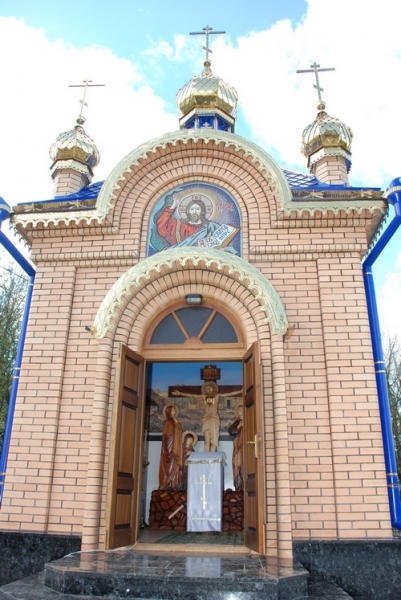Introduction: The Intersection of Mythology and Modern Gaming
Mythology has long served as a rich source of storytelling, symbolism, and cultural identity. Today’s game developers frequently draw inspiration from ancient myths to craft immersive worlds, compelling narratives, and engaging mechanics. This seamless integration of mythological themes into modern gaming not only enhances visual and narrative depth but also taps into universal archetypes that resonate across diverse audiences.
Understanding the mythological roots behind these games offers players a deeper appreciation of their design and storytelling layers. As an illustrative case, the popular slot game meter rewards only coins exemplifies how ancient gods like Zeus are reimagined in a contemporary context, blending mythic symbolism with innovative game mechanics.
- The Roots of Mythology in Cultural Narratives and Entertainment
- Mythological Symbols and Mechanics in Game Design
- The Influence of Specific Mythologies on Modern Slot Games
- Technological Innovations Shaped by Mythology
- Mythology’s Role in Building Excitement and Player Retention
- The Cultural Impact of Mythology in Modern Gaming Communities
- Mythology as a Tool for Innovation in Game Mechanics
- Ethical and Cultural Considerations in Mythological Game Design
- Conclusion
The Roots of Mythology in Cultural Narratives and Entertainment
Mythology forms the bedrock of storytelling across civilizations, serving as a means to explain natural phenomena, human origins, and moral values. From Greek and Roman gods to Norse and Egyptian deities, each culture’s myths encapsulate universal themes—creation, heroism, chaos versus order—that continue to inspire modern narratives.
Ancient archetypes such as the hero, the trickster, and the deity appear repeatedly in today’s entertainment, including movies, literature, and video games. These archetypes provide familiar frameworks that developers adapt to create engaging experiences, ensuring that mythological storytelling remains relevant and compelling in contemporary settings.
Transitioning from traditional myths, modern adaptations often incorporate digital art, interactive mechanics, and real-time storytelling, making ancient themes accessible to new generations of gamers and players.
Mythological Symbols and Mechanics in Game Design
Symbols such as gods, monsters, and legendary artifacts are central to myth-inspired game worlds. For instance, thunderbolts associated with Zeus symbolize power and divine authority, often translating into special in-game features like lightning wilds or bonus triggers. These symbols serve as visual anchors that evoke specific mythological stories or attributes.
Narratives rooted in myths enrich game worlds, creating immersive environments that deepen player engagement. Questlines might mirror heroic journeys or divine conflicts, leveraging storytelling to build emotional investment.
Popular mechanics inspired by myths include power-ups that emulate divine abilities, quests that reflect legendary quests, and artifacts acting as key items that unlock special features. For example, legendary weapons in myth-based games often function as multipliers or triggers for bonus rounds, linking gameplay mechanics directly to mythological symbolism.
The Influence of Specific Mythologies on Modern Slot Games
Slot games frequently incorporate mythological themes to attract players seeking both entertainment and cultural storytelling. Thunder deities like Zeus, Thor, and Ra are common motifs, symbolizing power, authority, and unpredictability. Their imagery often appears in bonus features or as thematic elements in game design.
A notable example is the game Le Zeus, which integrates Greek mythology’s thunder god into a dynamic slot experience. This game showcases how mythological underpinnings can enhance engagement by creating a thematic depth that resonates with players. Such themes evoke familiarity and excitement, encouraging longer play sessions and repeat visits.
Thematic depth achieved through mythological storytelling increases player retention, as players are drawn not just by mechanics but by the narrative universe behind the game.
Technological Innovations Shaped by Mythology
Modern slot games leverage technological advancements like grid formats, such as the Megaways 6×5 grid, to create dynamic storytelling environments. These formats mimic chaotic mythological battles or cosmic order, enhancing the narrative experience.
Mechanics such as cascading reels or expanding symbols evoke mythological chaos and order, symbolizing divine intervention or cosmic balance. For instance, cascading reels that clear symbols after a win can mirror mythological chaos giving way to divine order, creating a sense of epic progression.
Visual and sound design play a crucial role in evoking mythic atmospheres. Using thunderclaps, divine choirs, and myth-inspired iconography immerses players into a universe where ancient gods rule, making gameplay both captivating and atmospheric.
Mythology’s Role in Building Excitement and Player Retention
Familiar mythological figures foster an emotional connection, encouraging players to explore deeper narratives. The allure of divine power or legendary quests motivates continued engagement.
Storytelling and lore, embedded within game design, deepen the experience, transforming simple mechanics into mythic adventures. For example, unlocking the favor of gods or defeating mythical monsters can serve as a reward system that sustains player interest.
Many successful mythologically themed games attract large audiences. Their combination of engaging mechanics, rich narratives, and cultural symbolism creates a compelling experience that appeals to a broad demographic.
The Cultural Impact of Mythology in Modern Gaming Communities
Mythological themes foster vibrant communities, with players discussing lore, sharing strategies, and engaging in fan content. These communities deepen the cultural significance of myth-inspired games.
The rise of streaming platforms like Twitch has amplified this engagement, with mythologically themed slots reaching over 1 billion views in 2023, reflecting their widespread popularity and cultural resonance.
Myth-inspired content influences gaming trends, encouraging developers to explore new mythologies and reinterpret classic stories, thus continually refreshing the genre and expanding its cultural footprint.
Non-Obvious Perspectives: Mythology as a Tool for Innovation in Game Mechanics
Exploring lesser-known mythological stories offers unique gameplay ideas, such as mythic conflicts or alliances that can be transformed into innovative features. For instance, lesser-known gods and mythic creatures can serve as fresh characters or bonus triggers, providing novelty beyond mainstream themes.
Modern games reinterpret mythological conflicts—like divine wars or hero-villain rivalries—to craft dynamic gameplay experiences, blending storytelling with mechanics seamlessly.
Innovative reinterpretations of mythological concepts enable game developers to create fresh experiences, such as integrating mythic elements into puzzle mechanics or cooperative gameplay, pushing the boundaries of traditional slot design.
Ethical and Cultural Considerations in Mythological Game Design
Respecting cultural origins and avoiding stereotypes is essential. Developers should approach mythologies with sensitivity, ensuring accurate representation and avoiding cultural appropriation.
Striking a balance between entertainment and cultural sensitivity involves consulting experts and incorporating respectful narratives. For example, games that draw from Indigenous mythologies must do so with cultural acknowledgment and collaboration.
Case examples of respectful myth-based narratives demonstrate how creativity can honor cultural stories while providing engaging gameplay. Such approaches foster inclusivity and cultural appreciation within gaming communities.
Conclusion: The Enduring Power of Mythology in Shaping Exciting Modern Games
Mythology continues to influence game aesthetics, mechanics, and storytelling profoundly. Its archetypes and symbols provide timeless appeal, enabling developers to craft worlds that resonate on a fundamental human level.
Looking ahead, the potential for mythological themes remains vast, especially as technology enables more immersive and innovative experiences. The symbiotic relationship between ancient myths and modern entertainment promises a future where storytelling is richer, more diverse, and deeply engaging.
“Mythology is the universal language of storytelling—its influence in modern games is a testament to its enduring relevance.”















